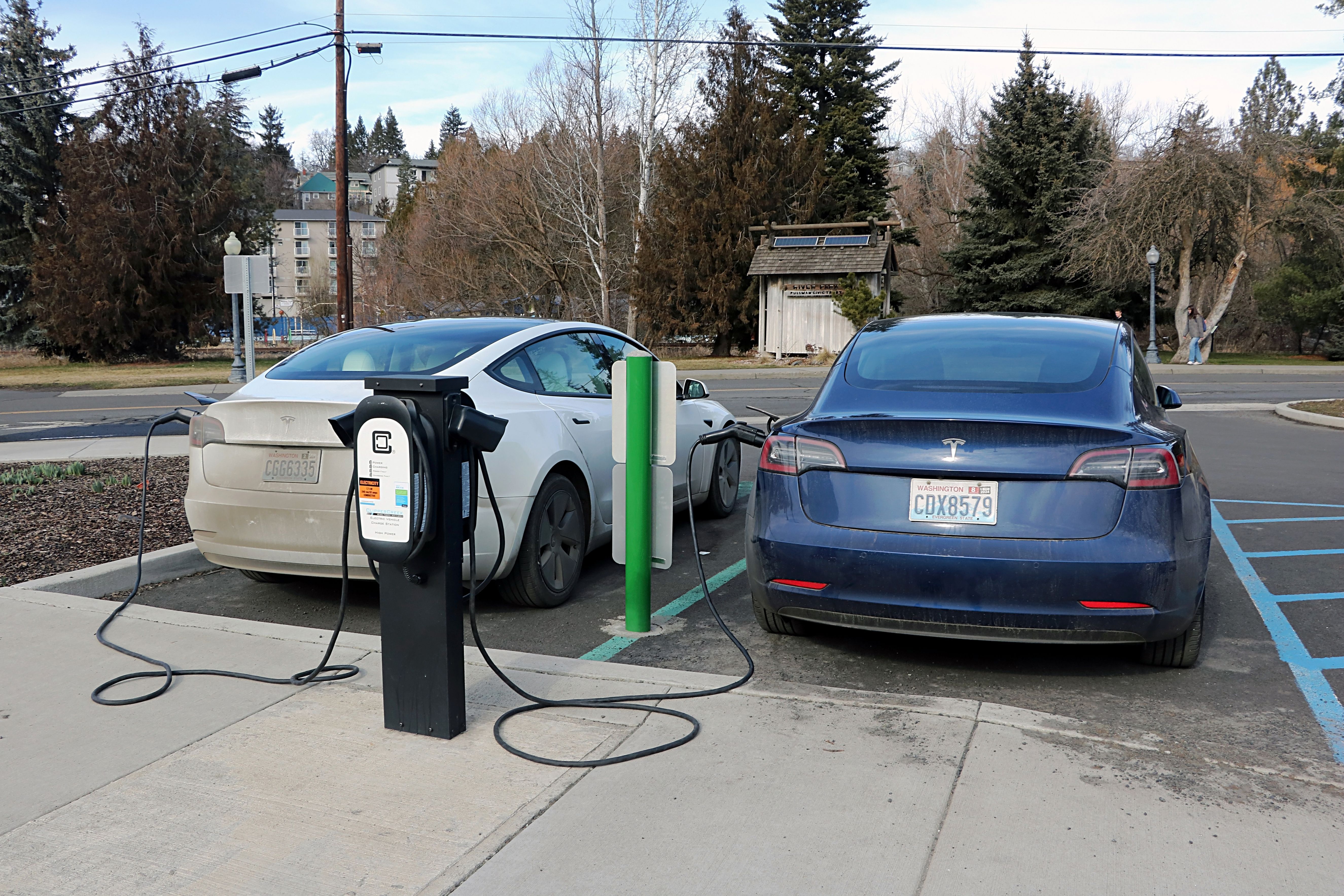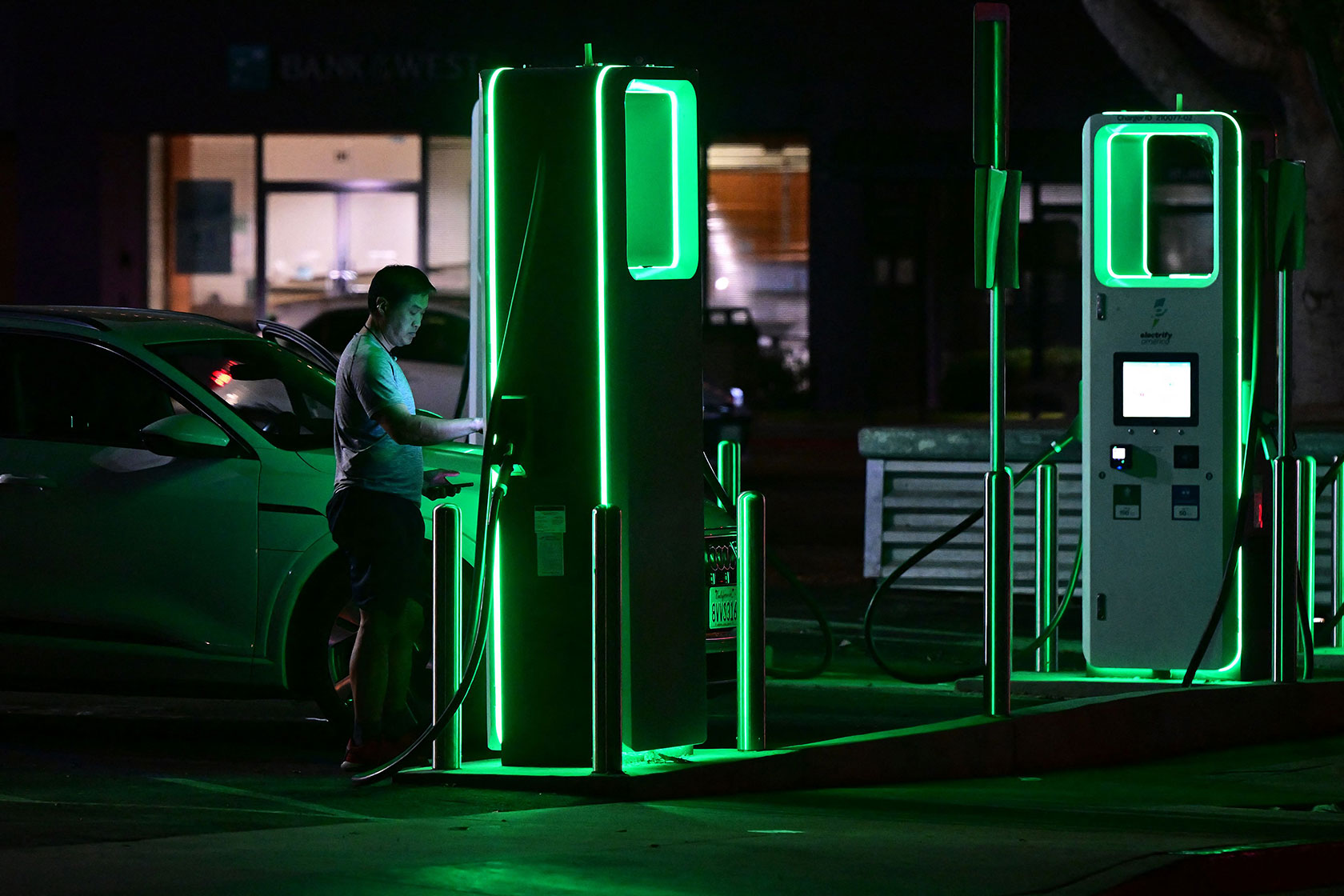Top Reasons Why It’s Essential to Buy EV Charging news Regularly
Top Reasons Why It’s Essential to Buy EV Charging news Regularly
Blog Article
Leading EV Charging News: Secret Updates on Infrastructure and Technology

Current Improvements in Fast-Charging Modern Technology

Furthermore, developments in battery technology, including boosted thermal administration systems and higher power thickness batteries, enhance fast-charging capabilities. These advancements alleviate the danger of battery deterioration throughout rapid charging, ensuring long life and efficiency for EV owners.
Additionally, the integration of wise billing options is improving individual experience, making it possible for real-time surveillance and vibrant prices designs. EV Charging news. This adaptability permits chauffeurs to optimize billing prices and times based on grid demand
As car manufacturers remain to purchase fast-charging networks, the cooperation between sector stakeholders is vital. Collaborations in between charging terminal providers and vehicle producers are leading the way for extensive insurance coverage, ultimately promoting a much more durable EV ecosystem. These innovations are crucial in sustaining the shift to sustainable transport.
Federal Government Initiatives for Billing Development
Government efforts play a crucial role in the growth of electrical car (EV) charging infrastructure, assisting in the transition to sustainable transport. Different federal and state programs are being applied to improve charging availability, lower the monetary worry on consumers, and promote the fostering of electric cars.
Especially, the U.S. government has actually alloted considerable funding through the Infrastructure Investment and Jobs Act, which allocates $7.5 billion for EV charging network advancement throughout the nation. This financing is aimed at releasing countless brand-new charging terminals, specifically in underserved areas, therefore resolving array anxiety amongst potential EV customers.
Additionally, various states are establishing regulations to enhance the permitting procedure for charging terminal installments, which is crucial for accelerating release. Motivations such as tax obligation credit reports and refunds for both customers and organizations are additionally being presented to motivate the installment of billing infrastructure.
In addition, public-private partnerships are increasingly coming to be an emphasis, leveraging personal financial investment to match federal government financing. These campaigns highlight a collective approach crucial for constructing a efficient and extensive EV charging network, eventually adding to a greener and more sustainable future.
Ingenious Battery Solutions Enhancing Efficiency
Revolutionizing the landscape of electric vehicle (EV) technology, ingenious battery remedies are significantly boosting efficiency and efficiency. Advances in battery chemistry, particularly with lithium-sulfur and solid-state batteries, are causing raised energy density, which enables longer varieties and faster charging times. These brand-new battery types have the possible to surpass standard lithium-ion batteries by providing higher capabilities while minimizing weight, thus improving general vehicle effectiveness.
Furthermore, developments in battery management systems (BMS) are maximizing energy use and prolonging battery life-span. Smart algorithms keep an eye on battery health and efficiency, allowing real-time adjustments to charging and releasing processes. This not just improves the performance of the battery yet additionally guarantees an extra reliable and lasting power source for EVs.
Furthermore, the integration of recycling technologies is dealing with the environmental impact of battery production and disposal. Advancements in second-life applications for EV batteries are promoting their use i was reading this in power storage space systems, adding to a round economic situation.
As these cutting-edge battery options remain to advance, they promise to change the EV market, making electric cars extra easily accessible and enticing to a more comprehensive audience while sustaining international sustainability goals.

Collaboration Between Automakers and Billing Networks
Identifying the crucial requirement for a durable billing facilities, car manufacturers are significantly working together with billing network carriers to boost the EV possession experience (EV Charging news). These collaborations intend to develop a seamless charging environment that benefits customers and sustains the transition to electrical lorries
Major vehicle brands are joining pressures with established charging networks to expand their charging station protection, making sure drivers have accessibility to reliable and hassle-free billing alternatives. As an example, partnerships with networks like ChargePoint and Electrify America enable automakers to incorporate billing services straight into their vehicles' navigating systems, directing individuals to the nearby terminals and providing real-time accessibility updates.
Moreover, these partnerships often cause the growth of fast-charging technologies that significantly reduce the moment required to charge an EV. By merging sources and experience, automakers and charging networks can introduce quicker, creating solutions that meet the expanding need for electrical movement.
Furthermore, joint initiatives might additionally cause more standard charging methods, which can minimize customer confusion and advertise more comprehensive EV adoption. Overall, these critical alliances are crucial in constructing a user-friendly and effective billing framework that meets the demands of a broadening electric automobile market.
Difficulties Facing EV Charging Infrastructure
As the electric automobile market remains to grow, a number of challenges are emerging that prevent the development of a detailed charging infrastructure. One of the key barriers is the not enough number of official site charging terminals, especially in underserved and country urban locations. This gap creates array anxiety amongst potential EV customers, deterring them from making the button.
In addition, the lack of standardization in billing innovation makes complex the infrastructure landscape. Variations in plug types and charging speeds can produce confusion for individuals and raise functional complexities for charging network drivers. Additionally, the integration of billing stations into existing electric grids presents substantial challenges. Numerous areas face capacity restrictions, needing significant financial investments in grid upgrades to suit boosted demand.
Another pushing issue is the high price associated with the installment and upkeep of billing stations, which can be an obstacle for both personal organizations and public entities. Regulative hurdles and zoning constraints can delay the deployment of billing facilities, hindering progress in increasing necessary solutions. Addressing these obstacles will certainly be important for cultivating a robust EV ecosystem that sustains the transition to lasting transportation.
Final Thought
In verdict, the recurring advancements in EV billing modern technology, supported by considerable government initiatives and innovative battery remedies, are critical for the growth and effectiveness of electric automobile infrastructure. Collaborations in between automakers and charging service providers additionally improve station insurance coverage, dealing with the growing need for available billing alternatives. Regardless of challenges that linger within the EV charging landscape, these advancements represent a favorable trajectory towards a more reliable and lasting electrical vehicle ecological community.
Advancements in billing infrastructure have led to the development of ultra-fast have a peek at these guys battery chargers capable of delivering up to 350 kW of power, substantially minimizing charging times. Variants in plug types and billing speeds can develop confusion for individuals and enhance functional complexities for charging network operators.In conclusion, the recurring developments in EV billing technology, sustained by considerable government campaigns and innovative battery remedies, are vital for the growth and efficiency of electrical car infrastructure. Collaborations in between car manufacturers and charging suppliers even more boost terminal protection, resolving the expanding demand for obtainable billing alternatives. Regardless of obstacles that continue within the EV charging landscape, these growths signify a favorable trajectory in the direction of a more efficient and sustainable electrical automobile community.
Report this page